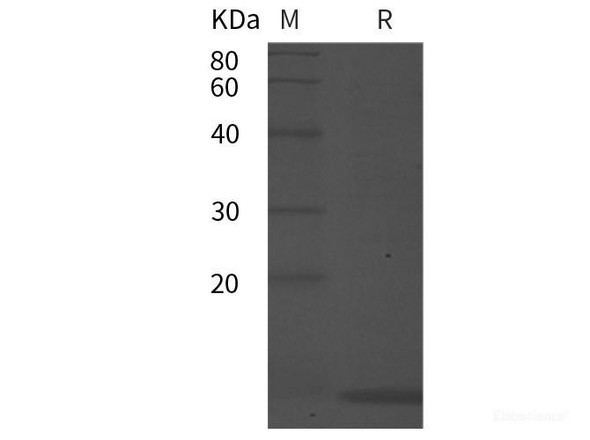| Sequence: | Met1-Try350 |
| Accession: | Q99259-1 |
| Storage: | Generally, lyophilized proteins are stable for up to 12 months when stored at -20 to -80°C. Reconstituted protein solution can be stored at 4-8°C for 2-7 days. Aliquots of reconstituted samples are stable at < -20°C for 3 months. |
| Shipping: | This product is provided as lyophilized powder which is shipped with ice packs. |
| Formulation: | Lyophilized from sterile PBS, pH 7.4. Normally 5 % - 8 % trehalose, mannitol and 0.01% Tween80 are added as protectants before lyophilization. Please refer to the specific buffer information in the printed manual. |
| Reconstitution: | Please refer to the printed manual for detailed information. |
| Background: | Glutamate decarboxylase 1, also known as 67 kDa glutamic acid decarboxylase, Glutamate decarboxylase 67 kDa isoform and GAD1, is a member of the group II decarboxylase family. GAD1 is expressed in benign and malignant prostatic tissue and may serve as a highly prostate-specific tissue biomarker. GAD1 isoform 3 is expressed in pancreatic islets, testis, adrenal cortex, and perhaps other endocrine tissues, but not in brain. Tissue-specific markers are useful for identification of tumour type in advanced cancers of unknown origin. In plants, as in most eukaryotes, glutamate decarboxylase catalyses the synthesis of GABA. Root-specific calcium/calmodulin-regulated GAD1 plays a major role in GABA synthesis in plants under normal growth conditions and in response to stress. Defects in GAD1 are the cause of cerebral palsy spastic quadriplegic type 1 (CPSQ1)which is a non-progressive disorder of movement and/or posture resulting from defects in the developing central nervous system. Affected individuals manifest symmetrical, non-progressive spasticity and no adverse perinatal history or obvious underlying alternative diagnosis. |










